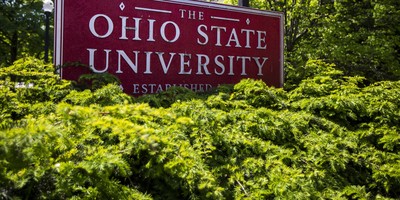The College of Cardinals met in conclave on Tuesday to begin the process of electing a new pope. The cardinals have been getting plenty of advice from American journalists.
The Catholic Church, they say, should open up the priesthood to women and allow priests to marry.
It should abandon its ban on contraception and endorse same-sex marriage. It should stop being so dogmatic about its dogmas.
As a non-Catholic, I don't presume to offer any advice. The church has managed to exist for nearly 2,000 without my counsel. But I do have some observations.
The journalists' advice is based on the premise that the church will lose members if it continues to adhere to what these journalists think are outmoded rules. And it risks antagonizing moderates who may admire its ritual and share some of its beliefs but want it to be more in line with contemporary thinking.
This resembles the advice journalists give to conservative (but not usually to liberal) politicians. You have to modify your beliefs to attract voters in the middle of the ideological spectrum.
Sometimes that advice is good; sometimes not. The assumptions behind it were validated by the defeat of Barry Goldwater but refuted by the victories of Ronald Reagan.
In the religious sphere, however, history soundly refutes the idea that watering down your beliefs strengthens your appeal and attracts new converts.
Recommended
Sociologists Roger Finke and Rodney Stark tell the story in their book "The Churching of America 1776-1990: Winners and Losers in Our Religious Economy."
As they note, Americans inherited a free market in religion from our colonial beginnings.
The religious settlement following Britain's Glorious Revolution of 1688-89 maintained an established church, funded by taxpayers, but allowed for free religious practice by other Protestants and by Catholics and Jews, as well.
The religious marketplace was especially free in the North American colonies, whose founders included Anglicans, Calvinist Puritans, Roman Catholics and Dutch Reformers.
The Founding Fathers took note of this diversity. In the Constitution, they specified that there be no religious test for public office. In the Bill of Rights, they barred Congress from passing any law regarding an establishment of religion.
Note that they didn't bar states from having taxpayer-funded established churches. Massachusetts had one until 1833.
But churches and clergymen (and clergywomen) were free to compete for Americans' allegiance. And they did so vigorously, with interesting results.
One is that church membership rose enormously, from surprisingly low levels in the colonial period.
Another is the rapid rise of new denominations. In the 19th century Methodists and Baptists -- Finke and Stark call them "the upstart Protestants" -- outnumbered previously more numerous Anglicans, Congregationalists and Presbyterians.
The Catholic Church grew not only among previously Catholic immigrants but also by making converts. Black Americans formed their own churches, which have thrived to this day.
The Church of Jesus Christ of Latter-day Saints and the Assemblies of God, both American creations, have attracted millions of followers here and around the world.
The 20th century saw the rise of evangelical and Pentecostal churches. Recent decades have seen huge rises in membership among such churches and continuing decline in the rolls of mainline Protestant denominations.
Surveying this history, Finke and Stark conclude that "religious organizations can thrive only to the extent that they have a theology that can comfort souls and motivate sacrifice."
Churches that make strong demands, in doctrine and in service, tend to grow. Churches that water down doctrine tend to decline.
"Theological refinement," Finke and Stark write, speaking of watered-down faiths, "results in organizational bankruptcy."
It should not be hard to understand why this is so. Many people seek structure and community. A church that makes strong demands and requires strong commitment can provide them.
Harvard sociologist Robert Putnam notes that churchgoers have more social connectedness in their communities. American Enterprise Institute President Arthur Brooks shows that religious people contribute far more, in time as well as money, to charity.
The journalists advising the Catholic cardinals, some of them former Catholics, think a church that is closer to secularism will attract people like them.
But in a country that doesn't penalize nonbelievers and imposes little stigma on them, the easier alternative is to stay home on Sunday or go out for brunch.
I'll watch with interest as the cardinals choose a new pope -- who, I suspect, will not be looking for my advice.

























Join the conversation as a VIP Member